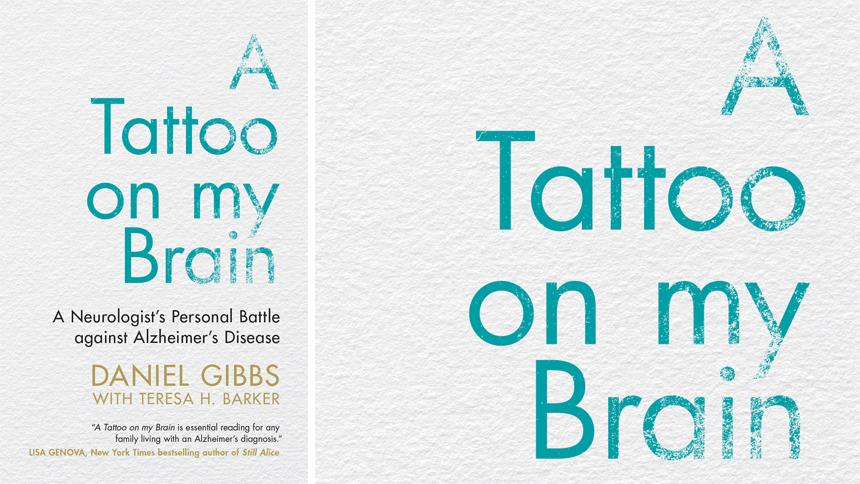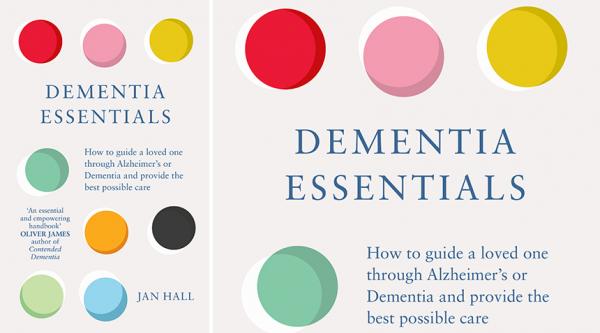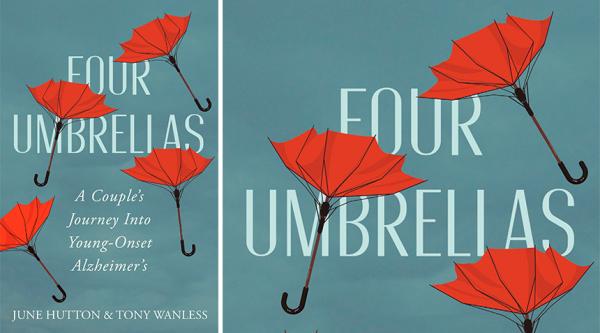Book group: A Tattoo on my Brain, by Daniel Gibbs
We read a book by US neurologist Daniel Gibbs, who was diagnosed with young-onset Alzheimer’s after years of supporting people with dementia.
‘A Tattoo on my Brain is the sort of book you immediately want to share and take action on after reading,’ says Addy Olutunmogun, in our Publishing team.
‘Part memoir, part science book and part practical guide, it is a moving, motivating and informative read.
‘Having spent 25 years treating people with dementia as a neurologist, Daniel Gibbs finds himself “on the patient’s side of the experience” as he comes to discover he has young-onset Alzheimer’s.’
Keith Oliver, a Society Ambassador in Kent who is living with Alzheimer’s, says, ‘Whilst the author’s professional background is different to mine, I recognise so much of our shared experience, especially around the onset of our dementias.
‘I am sure there are others who will take a lot from this part of the book, and I know how helpful I would have found it if I had read it 10 years ago.’

Rachel Bate in Bristol, whose close family members have been diagnosed with frontotemporal dementia, agrees, ‘This is an incredibly unique text, given the author’s background and current condition, which makes it more insightful and engaging.’
Dunroamin, on Talking Point, says, ‘This book has had a great effect on me. I am also a retired health professional (although not a neurologist) and like the author my knowledge and experience led me to being assessed very early despite the dismissive attitude of others.
‘But here is the rub. My insight and experiences are personal to me and no one else can “see” into my world. Added to this is the variation of the road travelled with Alzheimer’s.
‘Indeed, the emphasis the author puts on an early diagnosis brings various dilemmas. Not all individuals can be honest either with self or others, and therefore issues may be glossed over or missed. I am surrounded by what I call the “nonbelievers” who say my difficulties are just a reflection of getting older etc.’
Like a friend
Daniel uses his combined professional and personal insight to explain how people can act now to reduce their risk of Alzheimer’s or slow down its progression.
Addy says, ‘From first noticing a loss of his sense of smell, to seeing images of his brain that confirmed his dementia diagnosis, Daniel takes you with him every step of the way. Rather than lecturing you about Alzheimer’s, he speaks to you like a friend.’
A reader in Leicestershire says, ‘This is a fantastic book for anybody hoping to understand a bit more about how to delay the degenerative onset of Alzheimer’s and any other condition that heavily impacts the cognitive functions.
‘I was impressed with the author’s determination to not let his condition control him. His proactive approach in challenging his brain each day with things like crosswords to build up his cognitive reserve, as well as his seeking out research trials to participate in, was a breath of fresh air.’
Dunroamin says, ‘The book is easy to read, shows the author’s sense of humour (as opposed to resignation), is meticulously referenced and will be of great interest to future researchers, families of those with dementia and anyone else who happens to come across a copy.’
Worth reading
Keith says, ‘Gibbs addresses the real fears, despair and stigma that the disease-focused model engenders and generally tries to de-medicalise it, although understandably at times he slips into his medical comfort zone.’
Rachel agrees, ‘The book was mostly clear in its presentation, and the chronology made it easy to understand. However, I did have to reread some of the more technical chapters, such as Gibbs’ reaction to aducanumab.’
Caroline Scott-Gall in West Sussex, whose husband has Alzheimer’s, goes further, ‘I think this book falls between two stools. It has a lot of medical and scientific information, too much for a lay person, but it also has some really useful factual information for people living with dementia, Alzheimer’s in particular.’
She adds, ‘I have learned many valuable facts from it about Alzheimer’s, which inform me about my husband’s situation. It has given me much needed information about, and subsequent understanding of, what is happening to my husband’s brain and his consequent behaviour.
‘I was able to give my husband edited versions of some of these facts, which in turn reassured him that what is happening is “normal” in the context of Alzheimer’s. It was definitely worth reading but it needs a determined reader.’
Life lessons
Addy says, ‘Some of Daniel’s most powerful guidance is his emotional and wellbeing advice. From appreciating friends and family to tackling apathy and managing fear, his book is filled with as many significant life lessons as it is practical tips.’
Rachel says, ‘This book made me feel sad at times, but hopeful for the future.
‘Due to my own connections with dementia, it did worry me at times about the genes I carry, however I became considerably more aware of preventative lifestyle measures.’
Keith says, ‘I would recommend the book to everyone affected by dementia or professionals seeking greater insight into the life of one person with Alzheimer’s.’
Dunroamin adds, ‘Read – and do not be afraid!’
A Tattoo on my Brain, by Daniel Gibbs (Cambridge 2021), 254 pages, £18.99, ISBN: 9781108838931. Also available as an ebook or audiobook.





